The emotional cost of youth sports.
When you think of youth sports what feelings come up for you as a parent? For me, as a parent and a pediatrician, it makes me feel tired. Don’t get me wrong, being active every day is important for kids with growing bodies. Yet for so many kids, youth sports is more a life absorbing career than the one hour a day of play pediatricians recommend.
Most parents have no intention of letting youth sports take over their family life until it happens. What exactly do you do when your 6-year-old gets tapped for the competitive dance team? She’s talented and she loves it, shouldn’t you help her pursue her passions? Sure, dance has become your life, and it means that her opportunities for playdates are now limited. If she sticks with it, she’s certainly not going to have the experience of riding her bike around the neighborhood and knocking down a friend’s door. She’ll be at the dance studio 12-20 hours a week. But isn’t she learning useful skills?
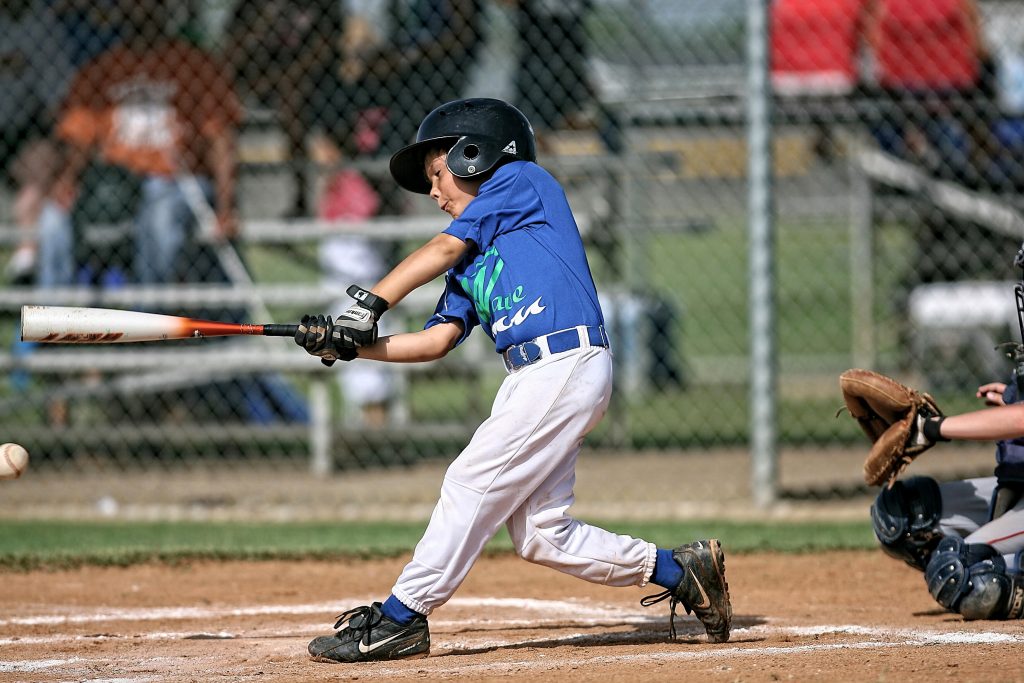
Team play teaches kids all kinds of useful skills, like working together, focus and following directions. Lessons about how to compete with good character and sportsmanship are clearly good for kids. But at what price?
Families are burning out.
The intensity with which we do youth sports is burning all of us out. Mothers tell me stories about giving up their careers to manage their kids’ sports and activities. Parents tell me how they regret not taking family vacations to build memories. How can they? The kids’ sports schedule is year-round and there isn’t time to travel. Nutrition suffers because now the kids eat fast food in the family van on the way to the travel team events.
In my recent article, I looked at the physical price children pay for overdoing athletic training at a young age in youth sports. Likewise, training this hard takes a toll on kids’ mental health. As the president of the National Association of Athletic Trainers has said, “Single-sports specialization is bordering on an epidemic in terms of the risks it can pose, for physical injuries as well as the potential for negative psychological effects.”
We, doctors, tell each other the stories of kids begging us to convince their parents they are too injured to play. One 11-year-old told me, “I just want to be a normal kid. I want to have a sleepover with my friends. I’ve never been to a sleepover because I always have a game the next day and I have to be at my best.” He loved soccer once, but being recruited to an elite club led to perpetual training he found tedious. Now he tells me he hates soccer.
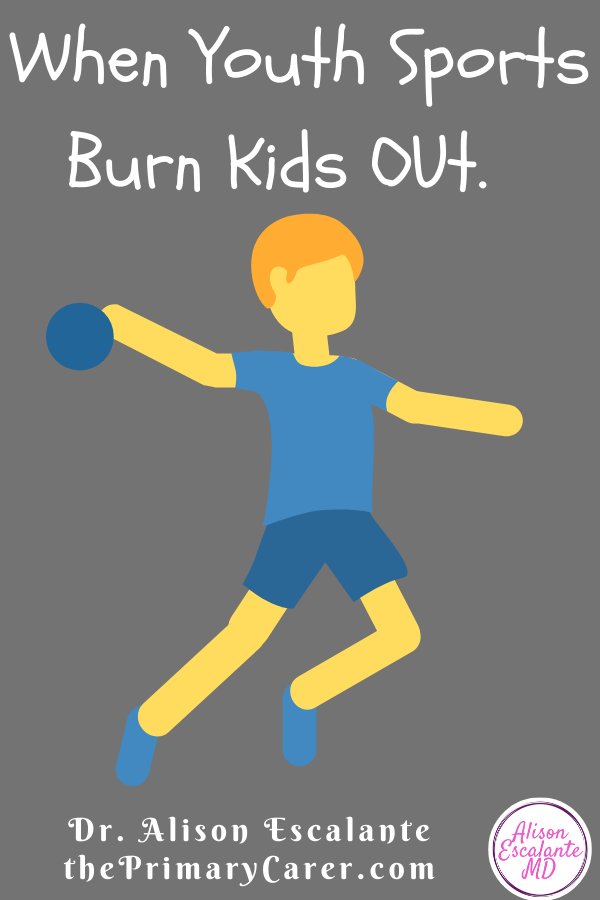
What is burn out?
Burn out is the loss of meaning and feeling of exhaustion that happens in high-performance environments, where outcomes are valued over people. Right now, we have very high levels of burnout in the workplace, in adults with established coping skills.
When we put kids in a high-performance youth sports culture, they are entering at an age when they have not yet built the developmental resilience tools they need. If our goal is to give our kids a chance to be a top athlete, we’re going about it the wrong way.
Do sports lead to a bright future?
Still, many of us believe that early-specialization in sports is a path to a bright future, even a college scholarship. I had a wonderful time competing as a Division 1 athlete in college, and I recommend it. No doubt being a recruited athlete helped my application to Princeton. I get it: sports are awesome and they can be a path to the kind of education we want for our kids. But what exactly do we want from education for our kids or a sports career?
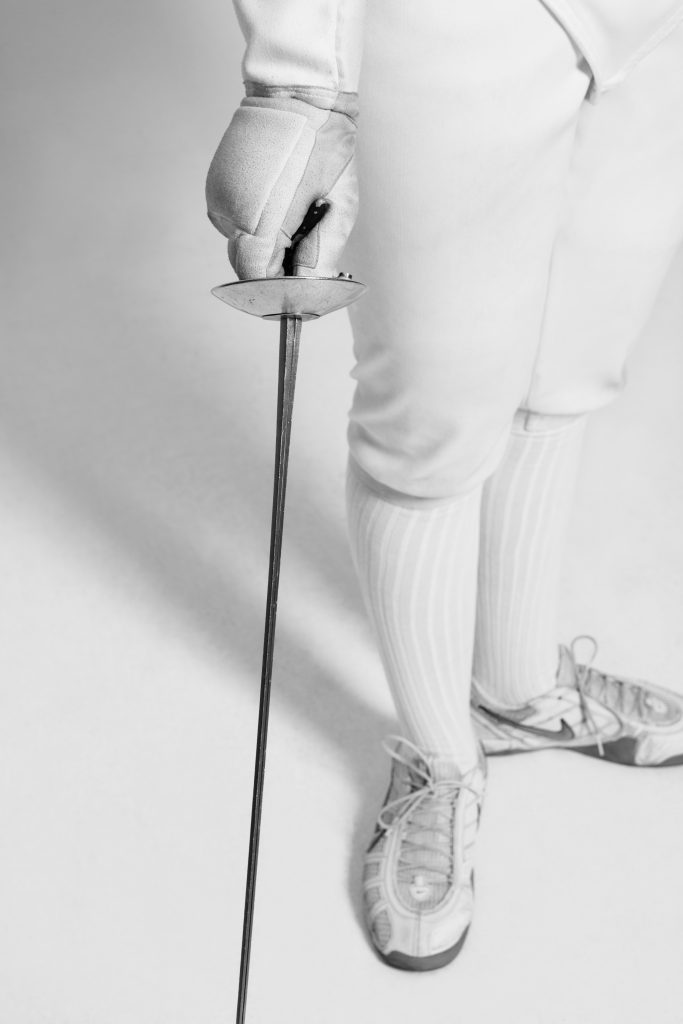
What is our goal for our children? As a mom, I want mine to be okay. I want them to have a good life; a thriving, satisfying life full of rich experience and relationships. If my kids grow up prepared for the hard times, knowing they can bounce back and go on, I will have succeeded. I also want my kids to grow up open to the good times, embracing happiness when they have it.
No athletic scholarship will give our kids what they need to face the inevitable difficulties of life. Nor will it bring them joy. It is their character and skills that will do that, it is their resilience. The kind of emotional exhaustion we are seeing from intensive youth sports in elementary school is not going to teach them that.
Success in athletics requires emotional resilience.
Emotional resilience is critical in athletics. I spent college covered in bruises and so stiff that walking across campus hurt. I kept walking and going to practice for 3 hours a day anyway. To succeed in competition, I had to manage my emotions. They could swing from fierce joy to total despair in a five-minute bout. It took grit to get through a full day of fencing.
So to succeed at the high level of competition we hope for our children, they need to come into it with resilience. Some parents think they learn it through the grueling 20 hours a week at the gymnastics with the coach that insists they practice on that painful ankle. When kids train that way, they are not learning resilience. They are learning to ignore their judgment and to please adults at their own expense.
The proof is in the way kids are burning out in youth sports. These days I expect it when a 6-year-old gets picked for the competitive dance team. By age 10-11, I expect she’ll be sick of dance and begging to quit.
Do you know how kids do learn resilience? Diverse experience and free-play. Resilience is something that comes from within us. It’s a kind of courage and commitment to living life fully. Resilience is deeply connected to joy. And it’s built out of childhood experiences like playing tag.
The truth is that competitive youth sports have already impacted childhood for everyone. Just look at one way we built resilience when we were kids: knocking on a friend’s door. Kids who do have time to ride their bikes over to a friend’s house often complain and get discouraged. Their friends are not around; they are too busy with scheduled activities.
Even hearing all of this, parents will have a hard time making a change.
The culture of youth sports runs on the fear of missing out (FOMO). Parents feel it’s too much, but if they pull back their child will lose their spot. FOMO tells us that earlier and grittier is better for our kids, and that later is too late. Parents are terrified to be the reason their kids missed out.
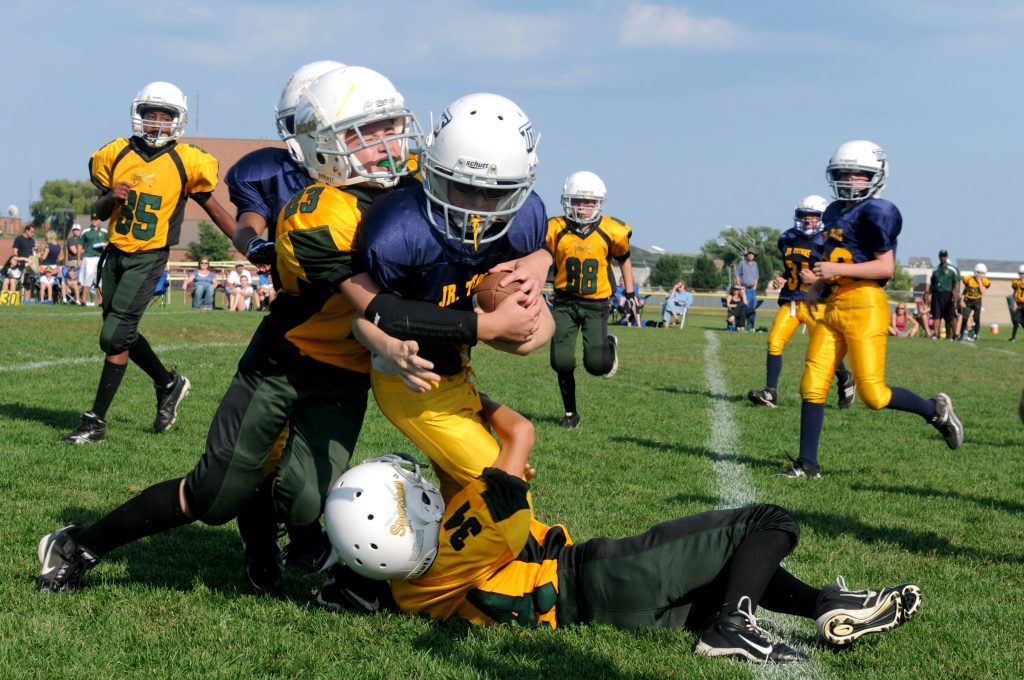
It’s time to harness our FOMO for a good purpose.
Parents can’t let go of anxiety for their children, that’s part of being a parent. Equally true: FOMO and the desire to belong is part of being human.
We can’t stop feeling the fear of missing out, but we can consider what we are missing out on. What do I fear that my kids will miss out on? It’s not collegiate athletics. It’s not a college scholarship or attending a top school. Those things sound great. But they seem unimportant when I remember that what I want for my kids is a good life.
I have FOMO of my kids missing out on finding their true selves. Maybe they won’t pursue what they are good at, or live lives full of creativity. I fear they will be miss out on the confidence that comes from ignoring their judgment.
Today, my kids reminded me of what childhood is. They had their friends over and built a contraption made out of scotch tape and cooking twine in the backyard. They worked together and solved disagreements to realize their creative vision. From a developmental perspective, that was a crucial learning activity.
Maybe if we get to know what we fear our kids missing out on most, we can harness it. Let’s use our FOMO to make sure our kids don’t miss out on the important things, the childhood things.
Want more? Sign up for my newsletter and get a free copy of Introduction to Should-Free Parenting.
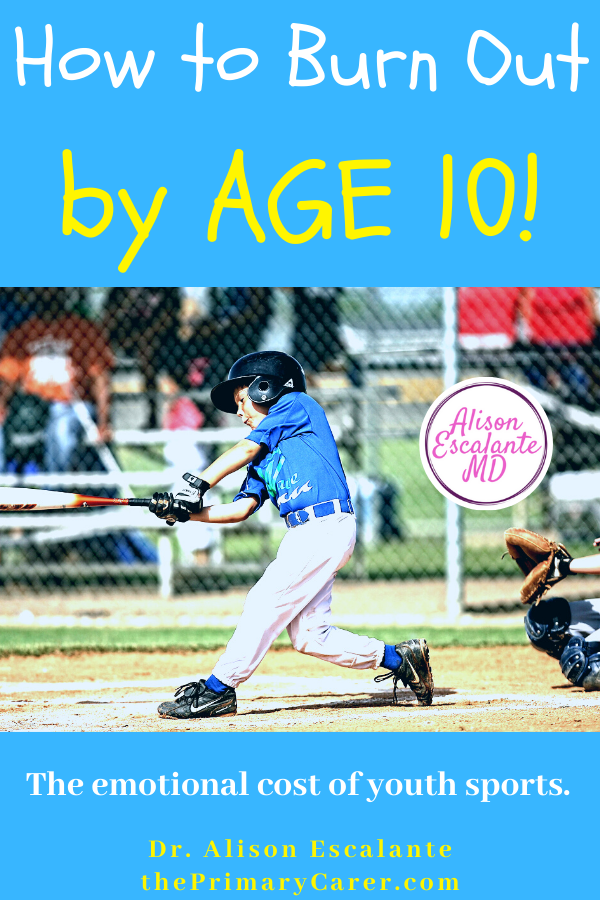
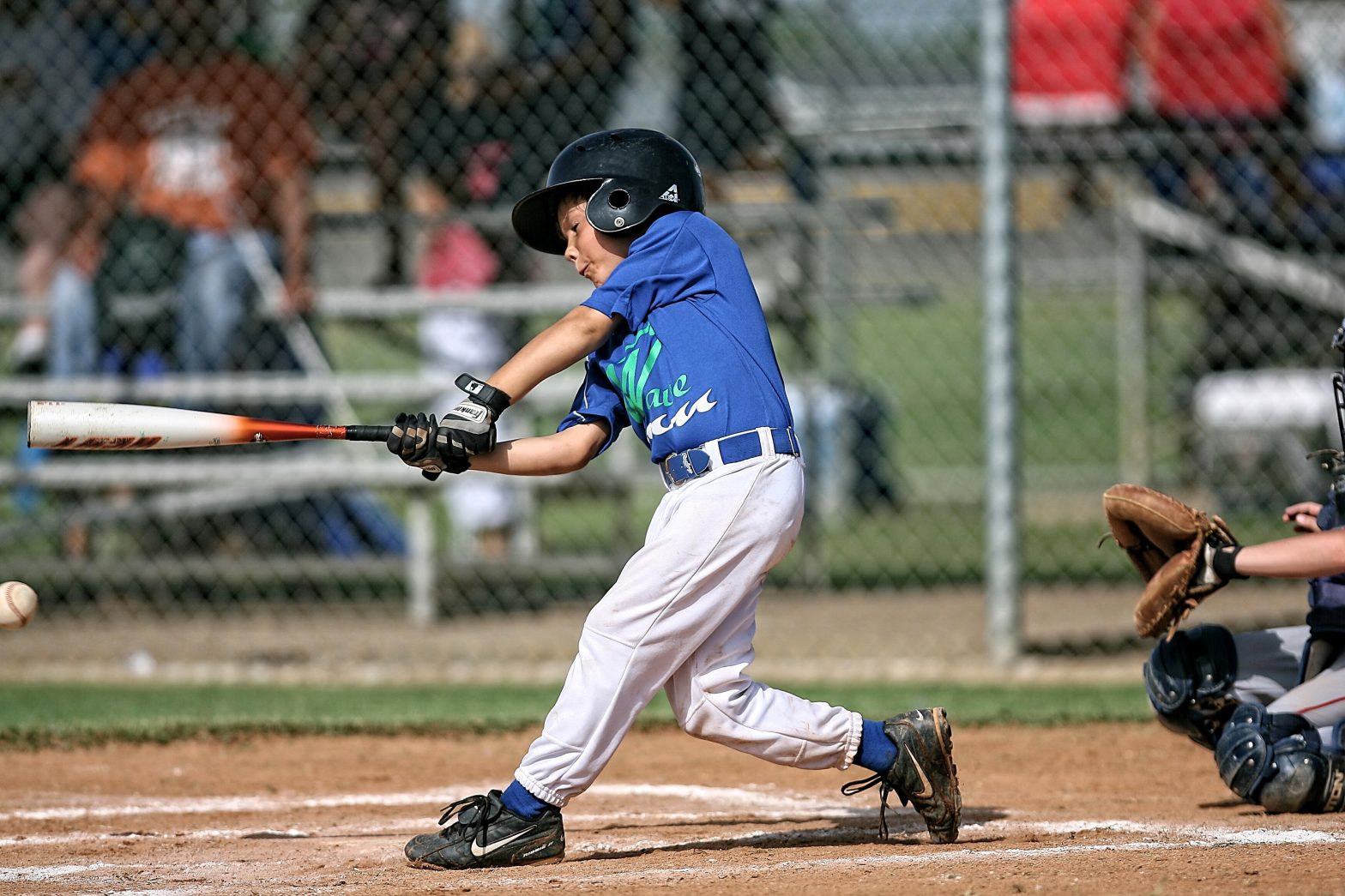

Jesus you are amazing.
Your blog is so perfect. Issue, info, example, solution. You inform and quote. You cite and you surmise. aside from your pushy social media buttons!!! You are the best laid out blog I know of.
Fascinating subject aswell. I am on the guard already because I want my kid to be a karate and swimming demon but after, and a distant second to being my daughter and a child.
Your post is inspiring. Thank you